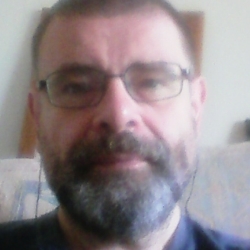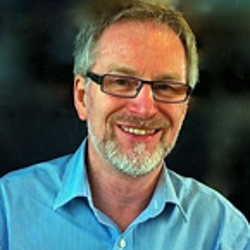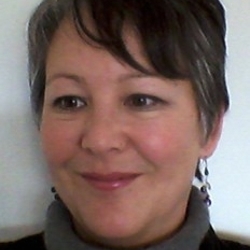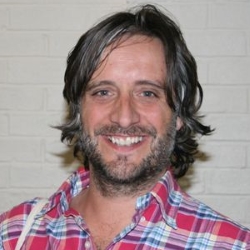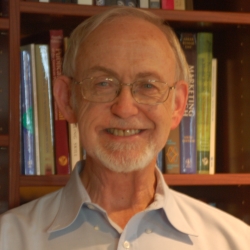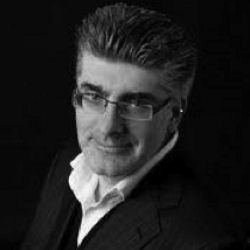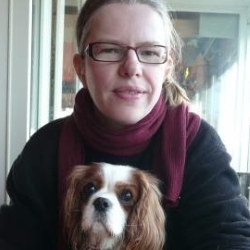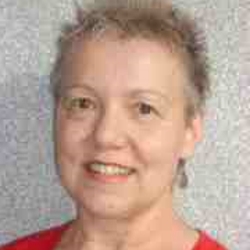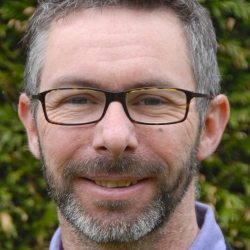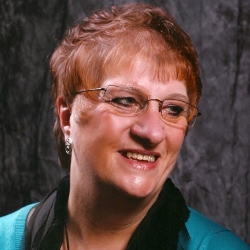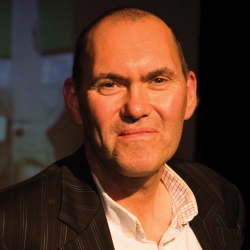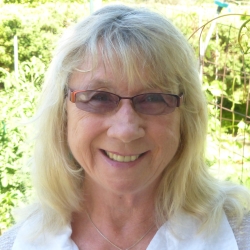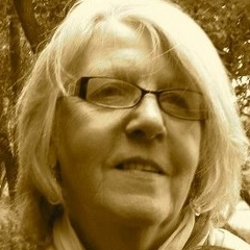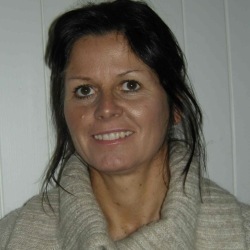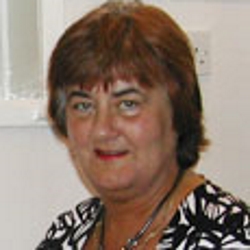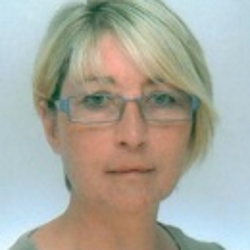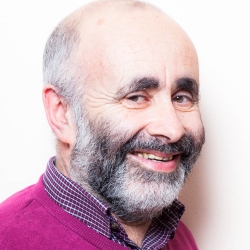Loading
Read MorePerson Centred Couples Counselling – Allan Turner & Kate Stubbings
This is an important, but often neglected area of Person Centred Counselling. There is very little theoretical writing which is exclusively person centred, on this subject. This presentation is unashamedly person-centred and will focus on PCA theory as it is applied to couples work.
Our two presenters are both very experienced in the field with more than 40 years experience between them. They are both Senior Accredited members of BACP.
Read MoreRunning A Great Group! – Lin Cheung
In this interview Lin talked about the theory underpinning the work that she does in therapy groups and the practical questions to think about when setting up a therapy group.
Read MoreStart with the Soil – Reflections for Educators with Giles Barrow
We began the series with the concept of natality – birth. Invariably overlooked by its more familiar partner – mortality – the importance of natality is most present in the process of education. Natality is all about renewal and what more obvious a way does a society engage in renewal but through how it educates the next generation.
We looked at the features of natality, the principal writers and its link with education. We also focused on the Cycle of Development as a powerful educational model. Based on the early work of Pam Levin, extended by Jean Illsley Clarke and Connie Dawson, we considered how development is essentially cycle of renewal spanning a lifetime.
Read MoreWAPCEPC – Mutuality of Rogers’ Therapeutic Conditions: The Process and Outcome of Successful Psychotherapy – David Murphy
In Rogers’ theory the natural consequence of therapy is for the client to experience greater congruence between experience and awareness, unconditional positive self regard. As a consequence of being received by the therapist experience of UPR and empathic understanding for the client, the client comes to experience these conditions towards others. Through my research I have provided empirical support for this aspect of our theory. Not only this, the research suggests that when the therapeutic relationship is characterised by the mutual experiencing of therapeutic conditions outcomes are also improved.
Read MoreJourney to the Heart of Person Centered Therapy – Arthur C. Bohart
Loading
Read MoreWhat Have the Positive Psychologists Ever Done for Us? The Person-centred Approach and Positive Psychology? – Stephen Joseph
Over the last decade the world of psychology science and practice has been changing. One mainstream development that person-centred psychologists need to be more aware of is positive psychology – the science of optimal human functioning and well-being.
The big idea of positive psychology is that we should be interested not only in distress and dysfunction but also in what makes life worth living. Does this sound like a familiar idea? It should.
Read MoreBuilding Your Own WordPress Website – Mieke Haveman
Mieke Haveman from Mieke’s marketing for Counsellors talked about her upcoming Build your own WordPress website course (offered through online training for counsellors).
Mieke’s Screen ShareBut you will get something extra during this interview. We will do screen sharing on air so you can have a look at her computer. She will give you a peek of what the back end of WordPress looks like. Back end is the area where you build your website and viewers don’t get to see.
Read MoreTop Tips for Emotional Regulation Using a Case Presentation – Stephanie Cooke
Following on from Stephanie’s last interview with us she has generously offered to come back and offer her top tips for helping clients emotionally regulate.
Stephanie used a case presentation to demonstrate strategies that she uses with clients to help them regulate their emotions and be more able to manage in their lives.
Read MoreWorking With Complex Clients – Andy Williams
One of the questions that Onlinevents focuses on is “What’s this all about?”
What a great question! I guess as a practitioner we all work with clients whose approaching session fills us with a sense of dread, fear or resistance.
Working as a psychotherapist both in secondary care NHS and in private practice I am really interested in how we work with these “complex” clients and what is stirred in us, either individually or as a member of a clinical team.
Read MoreHope for this Hour: Watch Out for Angry Flying Cows (Interview) – Carol Wolter-Gustafson
As part of the preparation for Going Global 2013 Carol has agreed to participate in an interview with the same title as her presentation at the conference.
Carol invites us to engage with the question “How do we bring ourselves?” when we live in relationships and national groups that find themselves in crisis.
Read MoreChallenges in Counselling: Self Harm – Andrew Reeves
I wrote Challenges in Counselling: Self Harm as a book in the new series of books by Hodder Education: Challenges in Counselling. While there are some resources available, there are few books written specifically for counsellors that consider practical and meaningful ways of working with self-harm in counselling.
These include recognising counsellor anxieties and working proactively with them, definitions, professional considerations as well as what the research tells us.
Read MoreRaising Awareness of Aspergers Syndrome – Kate Stubbings and Allan Turner
There has been a blossoming of awareness of the Autistic Spectrum condition including Aspergers’ in the last decade. It is estimated that the condition affects about 1% of the population. It frequently creates difficulties with empathy, social interaction, two-way social communication, leading to anxiety, fear and depression. We estimate that 1 in 10 of individual counselling clients is affected (either personally, or through a close relationship) by Autistic Spectrum conditions. For couples counsellors we estimate that this figure climbs to 4 in 10 since it creates so many relationship difficulties.
As person-centred counsellors we continue to offer Rogers 6 conditions to clients on the spectrum but we frequently find ourselves working differently and the concept of ‘empathy’ has to be reviewed afresh and used with precision and accuracy.
Read MoreTouchstone and Talisman: The Living Grid – Mo Felton
Touchstone and Talisman: The Living Grid, is a synthesis and progression of several TA theories and maps, incorporating concepts from other modalities, into a highly accessible yet complex touchstone for individuals and professionals at all levels of training and development.
In this interview we explored the application of the material in a wider context both personally and professionally for assessment, diagnosis, reflective self supervision and individual and group supervision and ultimately personal development.
Read MorePsychotherapy’s Role in Mutual Aid Based Recovery from Addiction and Alcoholism – Noel Mcdermott
How can we as psychotherapists engage with this process? This was the substance of the conversation with Noel McDermott. A psychotherapist who specialises in facilitating addicts into mutual aid programs.
Noel explored some of the evidence base for mutual aid, present his work in the main form of mutual aid ’12 Step’ (AA. NA. CoDA. Al-Anon. Al-Ateen. SLAA. OA. GA. UA etc). Looking at the dynamics of the steps, how they interface into psychotherapeutic practice.
Read MoreWhitdale Primary School Dyslexia Support – Fund Raising Run
John will be running with his brother Martin and their nephew Sean to raise funds for the excellent work going on in Whitdale Primary School, to…
Read MoreMarketing Your Counselling Practice – Lin Cheung
Before training as a psychotherapist Lin Cheung had a successful career in sales and marketing. In this workshop she will share with you some of her ideas on how to use online marketing and social media to support your business and build a successful private practice.
Lin is also a part-time artist and talked about the marketing strategies that she uses in this work and how they might be similar and different to how she markets her private counselling practice.
Read MoreAnger, Rage, & Relationship (Pre Conference Interview) – Sue Parker Hall
Suggested Reference Parker Hall S & Wilson J (2013). Anger, Rage, & Relationship (Pre Conference Interview). [ONLINE] Available at: https://www.onlinevents.co.uk/anger-rage-relationship-pre-conference-interview-sue-parker-hall/. [Last Accessed 21/05/13]. [divider]…
Read MoreThe Interface Between Neurobiology & Psychotherapy in the Service of Emotional Regulation – Stephanie Cooke
We enjoyed a stimulating hour with Stephanie Cooke as she bought her experience and knowledge of the interface between Neurobiology & Psychotherapy in the service of emotional regulation.
Steph has such a warm and passionate presence and was able to translate some very technical and challenging concepts into accessible language and concepts with direct application to working with clients in the field of Psychotherapy and Counselling.
Read MoreThe Interface Between Neurobiology & Psychotherapy in the Service of Emotional Regulation – Stephanie Cooke
In this discussion Steph talked about the importance of brain development, in the service of self regulation, and the impact of the lack of emotional attachment on the developing brain.
Steph also touched on some of the latest theoretical views about this subject.
Read MoreRelapse Prevention Strategies – Mark Dempster
Loading
Read MoreDancing at the Edge: Exploring the 21st Century Competencies – Maureen O’Hara & Graham Leicester
Psychologist Maureen O’Hara who was a long time colleague of Carl Rogers, and Graham Leicester, Director of International Futures Forum, conversation with John Wilson about the central ideas in their new book Dancing at the Edge: Competence, Culture and Organization in the 21st Century.
Read MoreSystematic Outcome and Process Feedback: A Person-centred Practice – Interview with Mick Cooper
Across a range of healthcare, educational and third sector contexts, counsellors and psychotherapists are increasingly being asked to use outcome monitoring forms, such as the CORE-OM, to evaluate the effectiveness of their practice. For many of us …
Read MoreLearning – and Being in Action? – Lynette Green & Max Hope
This online conversation is with Lynette Green and Max Hope. Lynette is a person-centred psychodramatist and Max is a person-centred educator.
During this online discussion, they talked about the benefits of using psychodrama as a tool for learning as well as their own views of person-centred education. They addressed the dilemmas of being open to being led by a group whilst also having their own agenda (in terms of content and method).
Read More“Holding the Space”: Wilderness Psychotherapy with Looked After Young People – Simone Silverpath
Wilderness Psychotherapy is at the cutting edge of psychotherapy. Child at Heart works with the Four Shields, an earth based ecopsychology model that acknowledges the cycles and seasons in nature and how they affect our lives, in other words, we show our clients how to work with the teachings of the land.
We take young people through the Four Shields, which are a psychological and physical map of all nature, of which we are a part. We bring young people into Holding the Space, a radical approach to working with trauma and abuse. This is a therapeutic model that focuses on the building of community and on non violent conflict resolution.
Read MoreWhy Do We Counsel Children and Young People? – Katherine Porter & Carol Targett
Katherine and Carol engaged in a dialogue about why they offer counselling to children and young people and why they train others to do the same. The dialogue was inspired by their own discussions around what they could offer to the conference as trainers and practitioners.
The Presentation is concluded by a thought provoking and moving story that led to an audience discussion about the practical and political issues around working with Children & Young People.
This presentation was a reflective end to a conference packed full of learning about working with Children & Young People.
Read MoreWorking with Anger – Mike Trier
I’ve worked for many years with teenagers labelled as angry, and poorly behaved, first as a teacher, and currently as a counsellor. I’ve developed ‘Working with Anger’ groups, aimed at teenage boys. We make sure they feel heard. And then we support them as they begin to take more control over their lives, even under difficult circumstances in school and at home.
We don’t have a magic wand, but we’ve a track record in helping young men engage with school more effectively!
Read MoreEngaging with Children and Adolescents: A Whole New Ball Game? – Karen F. Burke
Often children and adolescents will not make the decision themselves to attend therapy. Professionals or caring adults choose. The initial step of working with this client group is to engage them in the therapeutic relationship and this short workshop will consider how to engage and build the therapeutic relationship. I will consider rage, shame and conflict within the relationship and how to engage child and adolescent clients.
Read MoreWorking Relationally to Explore the Impact of Trauma in Children and Adolescents – Amanda Phillips & Stephanie Cooke
In this workshop we will explore the emotional and relational impact of trauma on children. This will include a brief overview of the impact of trauma on brain development and attachment patterns. Through the use of clinical examples we will demonstrate how to work effectively and safely with trauma.
Read MoreSchool-based Counselling for Young People in the UK: What we Know, How It Fits with a Contemporary NHS Agenda, and New Developments – Mick Cooper
Click here to download free 34 page report SCHOOL-BASED COUNSELLING IN UK SECONDARY SCHOOLS: A REVIEW AND CRITICAL EVALUATION Abstract …
Read MoreIntegrating Mindfulness with CBT in Treating Anxiety – Andy Malone
Andy Malone is a Cognitive Behavioural Therapist, Clinical Hypnotherapist and registered Mental Health Nurse. Currently working as Course Director at the Centre of Therapy Glasgow and as a Cognitive Behavioural Therapist in sexual health and wellbeing with Sandyford Counselling & Support Services, NHS Greater Glasgow and Clyde and in private practice.
Read MoreWorking With Anxiety Using Gestalt Psychotherapy – Karen F. Burke
Loading
Read MoreWorking With Couples Using Carl Rogers’ 6 Conditions – Allan Turner
Allan Turner is about to begin his 18th course training Counsellors and Psychologists to work with Couples using a Client Centred Perspective.
Allan very generously spent an hour with us taking questions and offering his perspective on the relevance of Carl Roger’s 6 conditions for Therapeutic Change.
Read MoreWorking with Anxiety Using Cognitive Behavioral Therapy – Hilda Smith
Hilda was Training Manager in NHS Ayrshire and Arran until Dec 2004 when, having retrained, she decided to expand her work as an independent Cognitive Behavioural Therapist. She consults in Glasgow and Ayrshire. Hilda is BABCP Accredited and UKCP registered and works with people with a number of emotional disorders and unhelpful behaviours.
Read MoreWorking with Anxiety in Children and Adolescents – Katherine Porter
Katherine is an experienced Integrative Psychotherapist, teacher and supervisor with a small private practice. She currently teaches at Simpson House, Edinburgh, on their Diploma in Higher Education:Counselling Children and Young People and has been working with them to produce a Post-Qualifying Certificate course, Counselling Children and Young People, due to start in April 2013. She has specialised in working with children and young people in the educational setting of schools and Pupil Referral Units and has set up a counselling service with a Local Authority as well as working with the charity, Place2Be. She has a particular interest the therapeutic role of the teacher in the lives of their pupils with regard to anxiety
Read MoreEngaging with Children and Adolescents: A Whole New Ball Game? – Interview with Karen F. Burke
As part of the preparation for the “Working with Children & Young People” Conference that Karen is presenting at on January 26th, Karen has agreed to do an online interview with us to give us a sense of herself and how she works.
Read MoreCreate it! Change it!: A New Approach to Parenting – Interview with Jacci Jones & Sarie Taylor
Suggested Reference Jones J, Taylor S & Wilson J (2012). Create it! Change it!: A New Approach to Parenting – Interview with Jacci Jones…
Read MoreThe Relationship in Supervision – Robin Shohet
In this fourth event with onlinevents Robin talks about the importance of the relationship in Supervision and in Therapy and the role that trust plays. Robin talks about the impact of differing modalities, insurance and betrayal in helping relationships.
Read MorePractitioner As Cultivator – Giles Barrow
Giles has written and presented on the “Educator as Cultivator”, reflecting on his experience moving with his family from London to live and work on a farm and the steep earning curve he experienced.
Considering the role of cultivation in his own experience of learning, holding space in a way that supported him through the shame of conscious incompetence, was vital in sustaining his development.
Giles describes the need for the cultivator to be grounded in the learning relationship and be able to act courageously on our intuition that something “may be amiss”, while not intervening in a way that diminishes the learners energy and autonomy.
Read MoreStarting A Counselling Service: Is It for You? – Nicola Currie
Nicola has started and managed two counselling services and also runs a successful private practice from home.
In the interview Nicola will shared her experience and learning gained from starting and managing two counselling services and set us three questions for discussion.
Read More